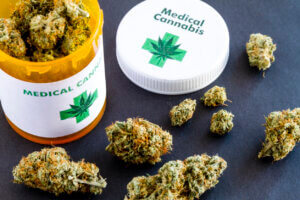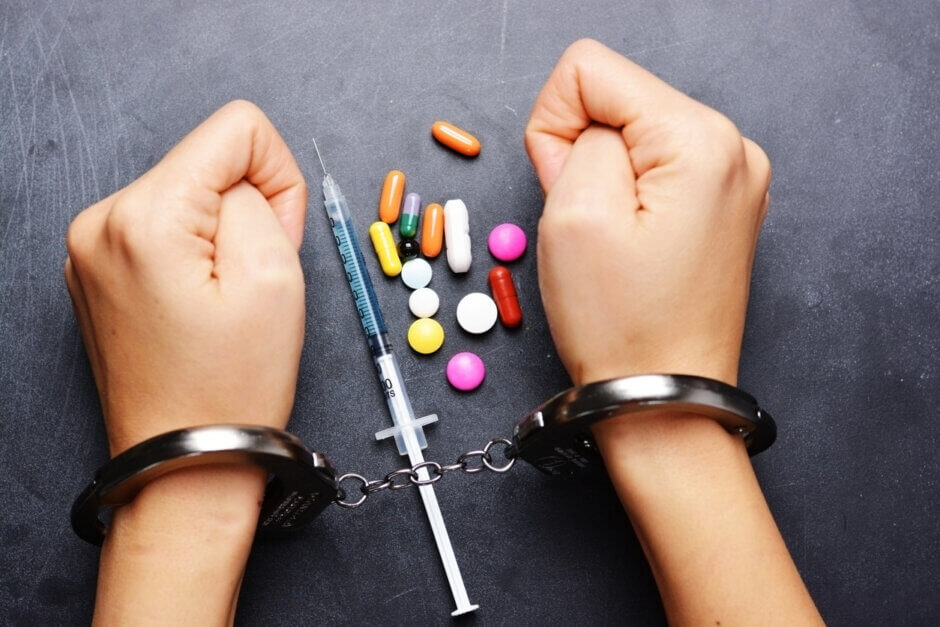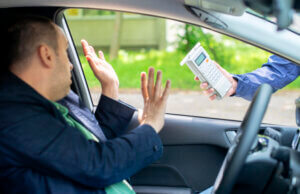Court Rules You Can be Charged and Convicted of DUI of Drugs for using Medical Marijuana
 Many medical marijuana users in Pennsylvania are in shock over the recent ruling in early May 2022 that says the legal medicine they have been prescribed could mean they are at risk for being charged with Driving Under the Influence (DUI) in Pennsylvania.
Many medical marijuana users in Pennsylvania are in shock over the recent ruling in early May 2022 that says the legal medicine they have been prescribed could mean they are at risk for being charged with Driving Under the Influence (DUI) in Pennsylvania.
If a person is charged with DUI drugs in PA and have no other controlled substance or alcohol in their blood, they could still face the maximum penalties as a person with the highest rate of blood alcohol content (BAC) level. Penalties include a one year license suspension, up to six months in jail and a heavy fine (first offense).
Many people say they are not impaired at the time of their arrest. However, trace amounts of marijuana and metabolites can stay in the blood stream for days after use, long after a person is considered “impaired” or “high”.
Even though Schedule I drugs are defined by the United States Drug Enforcement Agency (DEA) as “drugs with no currently accepted medical use and a high potential for abuse”, medical marijuana is still classified as a Schedule I controlled substance, as is heroin, meth and ecstasy.
The ruling made by the Pennsylvania Superior Court was in rejection to an appeal of a DUI case, in which the defendant was charged with DUI after initially being pulled over for illegally speeding.
In the ruling (Commonwealth v. Dabney) May 5 ruling, Judge D. Kunselman wrote a 17 page opinion which says “medical marijuana remains a Schedule I controlled substance,” and that “no conflict exists between the Medical Marijuana Act and the Vehicle Code.”
She also added that the Medical Marijuana Act “did not remove marijuana from the list of Schedule I controlled substances.”
The defendant, Dabney, argued that marijuana ingested, pursuant to the Medical Marijuana Act, 35 P.S. §§ 10231.101, is not a controlled substance within the meaning of the Controlled Substance, Drug, Device and Cosmetic Act, and therefore he could not be prosecuted for DUI under 75 Pa.C.S.A. § 3802(d)(1) based on medical marijuana in his blood.
Read the full ruling here. Read about the case in the York Daily Record.
This ruling holds precedence and will have an effect on other similar DUI cases involving medical marijuana in Pennsylvania. There are over 400,000 legal registered users of medical marijuana in Pennsylvania.
Is there anything that can be done if you are charged with DUI of Medical Marijuana in PA?
First, anyone charged with a crime has the right to fight against the charges – DUI cases are fought and won every day in court. Having an experienced attorney who has successfully taken on and won hundreds of DUI cases can help.
Second, you could be eligible to apply for a pardon. In late 2020, lawmakers in the Pennsylvania House voted to amend the DUI law to decriminalize trace amounts of marijuana for legal medical marijuana users. However, the Pennsylvania State Senate has yet to take measures to vote on it and move it to the Governor’s desk. Until then, there is a possibility of being charged with DUI.
However, the Pennsylvania Board of Pardons recently established an expedited review program for non-violent marijuana offenders in Pennsylvania. Under this program, people who are legally allowed to use medicinal marijuana and who have been charged with DUI, are eligible to apply for a pardon.
An Arrest is Not a Conviction
If you were charged with DUI of marijuana in Pennsylvania or are facing marijuana charges or other drug charges, contact our experienced Pittsburgh DUI and Drug Lawyers for a free consultation. Our attorneys can either help you apply for a pardon or fight the charges, depending on your circumstances.
If the cops catch you, call Ketchel
PITTSBURGH DRUG LAWYERS
KETCHEL LAW
Call 412-456-1221 for a free consultation
If you have been charged with a crime in Pennsylvania, contact Ketchel Law today.
Our number one goal is to have your charges dismissed and your record clean.
Learn more about Marijuana Laws in Pennsylvania
- Overturning marijuana convictions in Pennsylvania
- Marijuana smells and vehicle searches
- Marijuana Reform in Pennsylvania
- Decriminalization of Marijuana in PA
- Marijuana Charges in PA – Small Amount
- Pittsburgh Marijuana Lawyers
_____________________
FREE LEGAL CONSULTATION
We offer free legal consultations to anyone charged with a crime. Call us today to find out how we can help defend your rights.
Learn more about Ketchel Law:
- Pittsburgh Criminal Lawyers
- Pittsburgh Drug Lawyers
- Pittsburgh DUI Lawyers
- Read Client Reviews
- Case Results










